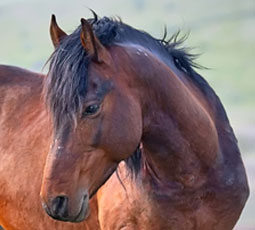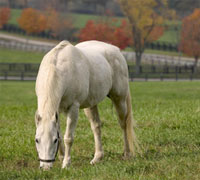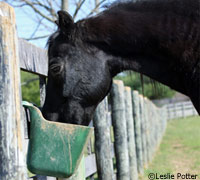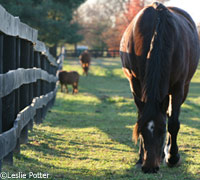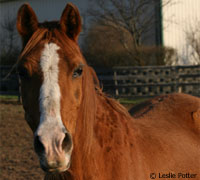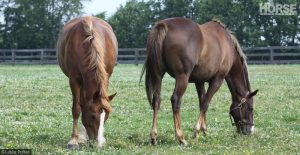Horse nutrition is a big topic for horse ownership and horse care. Horses need to receive the best and most appropriate nutrients and types of feed in order to perform at their best. Topics include forage, water, pasture, concentrates and grains, treats, supplements, and more. Articles cover joint supplements, how to evaluate hay quality, healthy treats for the holidays, how nutrition can affect or cause disease, colic, nutritional management to prevent ulcers, what to feed during a hay shortage, feeding the senior horse, how to find the right horse feed, feeding across different seasons, how to make homemade horse treats, when to add supplements, and so much more.
Horse Nutrition
no

